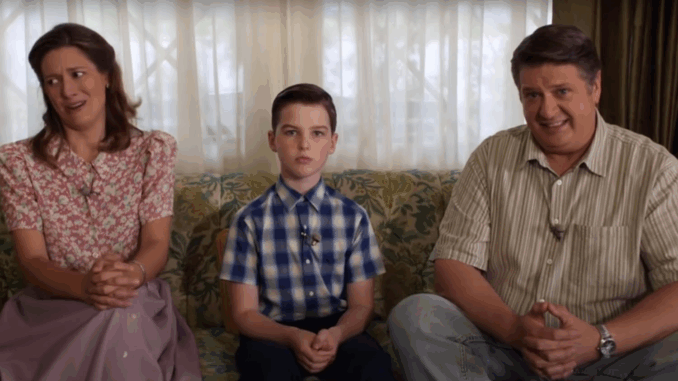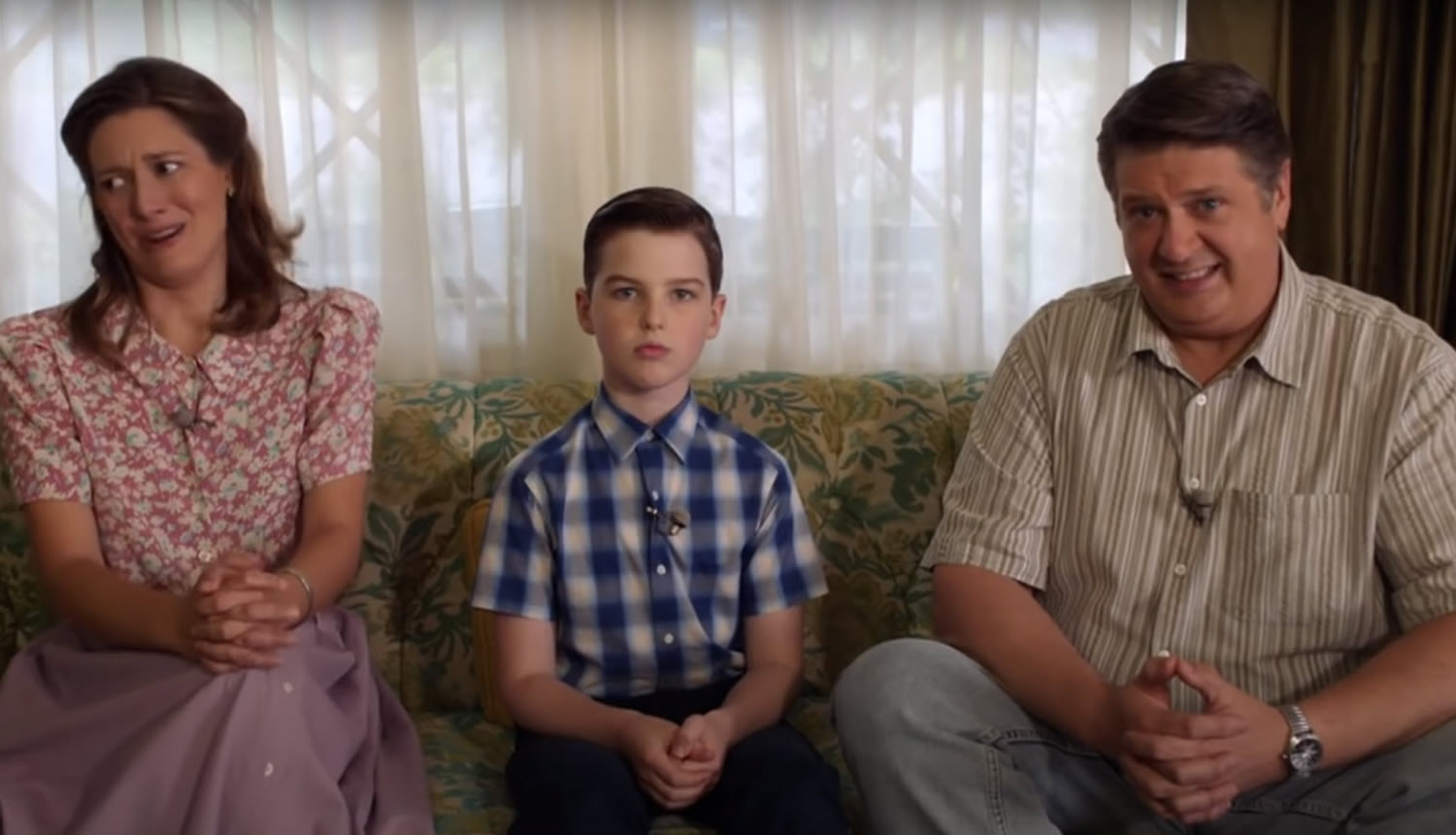
When The Big Bang Theory ended, fans were left wondering if anything could fill the geeky, hilarious void it left behind. Enter Young Sheldon — a character-driven prequel exploring the early years of Sheldon Cooper, the brilliant and socially awkward physicist. Now deep into its run, Young Sheldon has become one of the most-watched sitcoms in the US. But here’s the million-dollar question: Is it actually any good?
Let’s break it down — story, characters, tone, and what makes this prequel so different from its predecessor (for better and worse).
What Is Young Sheldon All About?
Young Sheldon follows Sheldon Cooper at age 9 as he skips several grades and begins high school in East Texas. It’s set decades before the events of The Big Bang Theory and focuses on Sheldon’s relationships with his quirky family, school struggles, and early glimpses of his scientific genius.
A Very Different Tone Than The Big Bang Theory
No Laugh Track, No Problem?
Unlike The Big Bang Theory, Young Sheldon is filmed like a single-camera dramedy — think The Wonder Years or Malcolm in the Middle. There’s no laugh track, no studio audience, and a lot more heart.
That change may be jarring at first, especially for fans used to the rapid-fire jokes and banter. But it gives the show space to develop genuine emotion and deeper storytelling.
The Heart of the Show — Sheldon’s Family
Iain Armitage as Young Sheldon
Let’s just say it: Iain Armitage absolutely nails it. He captures Sheldon’s quirks, arrogance, and brilliance without turning him into a caricature. You believe he grows up to be the Sheldon we know.
The Unsung MVP — Zoe Perry as Mary Cooper
Sheldon’s mom, Mary, played by Zoe Perry (who happens to be the real-life daughter of Laurie Metcalf, who played the same character in TBBT) is phenomenal. She brings warmth, faith, and quiet strength to the role. Her dynamic with Sheldon is tender and complex.
Georgie and Missy Bring Balance
Sheldon’s siblings, Georgie and Missy, steal plenty of scenes. Georgie provides the comedy, while Missy is the sharp, sarcastic foil to Sheldon’s intensity. Their presence gives the show a grounded, relatable energy.
So… Is It Funny?
Yes — but not in the same way as The Big Bang Theory. Young Sheldon trades punchlines for personality-driven humor. The jokes are subtler, the awkward moments more human. If you’re looking for laugh-a-minute gags, this might feel slower. But if you appreciate clever, warm writing? You’ll love it.

Real-Life Lessons in a Sitcom Shell
One of the biggest surprises? Young Sheldon gets real.
It Doesn’t Shy Away from Tough Topics
From religious tension to mental health, bullying to financial hardship, Young Sheldon addresses serious subjects with surprising depth — especially in later seasons. It’s not just a show about a kid genius; it’s about growing up different in a world that doesn’t always understand you.
The Chuck Lorre Touch
Though Young Sheldon feels very different, it still carries Chuck Lorre’s storytelling DNA — a blend of humor, emotional payoffs, and character development. The difference? Here, it’s slowed down and allowed to breathe.
Cameos & Easter Eggs for Big Bang Fans
If you’re a die-hard Big Bang fan, there’s plenty of fan service:
-
Jim Parsons narrates every episode as adult Sheldon.
-
Amy Farrah Fowler (Mayim Bialik) makes voiceover appearances.
-
Key phrases like “Bazinga!” are subtly introduced.
-
Iconic objects — like Sheldon’s love for trains — get a backstory.
These little nods are satisfying without being overbearing.
Critical Acclaim vs. Audience Love
Critics initially gave Young Sheldon mixed reviews, but audiences fell hard. Over the years, it’s won over both camps, earning strong ratings and critical praise for its writing and performances.
How the Show Has Evolved Over Seasons
Early Seasons Were More Episodic
The first couple of seasons leaned into sitcom-style plots: quirky science experiments, awkward school moments, etc.
Later Seasons Got Much Deeper
As Sheldon ages, the show matures. It delves into complex themes like loss, ambition, and identity. The writing gets sharper, and the characters more layered.
The Emotional Punch You Didn’t Expect
Let’s be real — nobody thought they’d cry during a show about Sheldon Cooper’s childhood. And yet, Young Sheldon has delivered tearjerkers that rival any prestige drama.
Especially as it nears the events leading up to Big Bang Theory, the emotional stakes climb. You know where it’s going… and that makes it hit even harder.
Is Young Sheldon Better Than Big Bang Theory?
It depends on what you want:
-
Love punchy jokes and pop culture references? Big Bang Theory is your jam.
-
Crave heartfelt storytelling with humor and growth? Young Sheldon might surprise you.
They’re very different shows — and that’s a good thing.
Conclusion
So, is Young Sheldon any good? Absolutely — just in a different way. It’s not a laugh-track comedy. It’s a thoughtful, funny, and often moving look at what makes Sheldon Cooper tick — and how the people around him helped shape who he became.
Whether you’re a Big Bang superfan or just love a good coming-of-age story, Young Sheldon offers something heartfelt, smart, and worth your time. If you haven’t given it a real shot yet… maybe now’s the time.
FAQs
Q1: Do I need to watch The Big Bang Theory before Young Sheldon?
A1: Not at all! Young Sheldon stands on its own, but fans of TBBT will enjoy the deeper context.
Q2: Is Young Sheldon appropriate for kids?
A2: Mostly, yes. It’s family-friendly, though it does touch on mature themes in a sensitive way.
Q3: How many seasons are there?
A3: As of now, there are 7 seasons, with the final season recently wrapped up.
Q4: Does the show end with a tie-in to The Big Bang Theory?
A4: Yes, the finale includes powerful callbacks and even a hidden reunion with the original Big Bang cast via voiceover.
Q5: Is there a sequel or spin-off planned?
A5: Yes! A spinoff called Georgie & Mandy’s First Marriage is in the works, continuing the universe beyond Sheldon’s story.